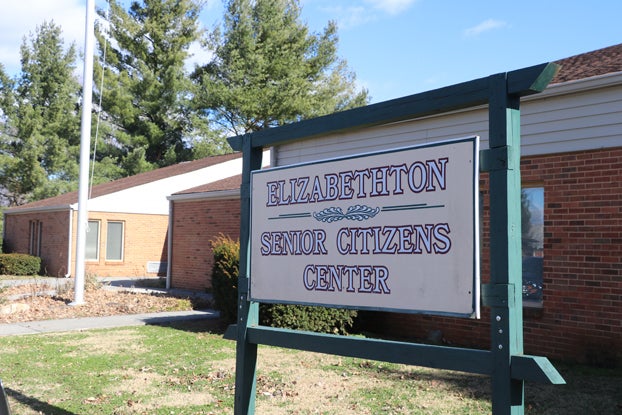AG says state cannot refuse refugees; lawmakers worry about safety, security
Published 9:59 am Wednesday, December 2, 2015

In the wake of terrorist attacks in Paris and other parts of the world, many states, including Tennessee, asked the federal government to halt the placement of thousands of Syrian refugees throughout the country. On Tuesday, Tennessee Attorney General Herbert H. Slatery III issued an opinion saying the state does not have the authority to refuse to accept the refugees if the federal government decides to place them in Tennessee.
The attacks in Paris occurred on Nov. 13. During the early stages of the investigation into the Paris attacks, it was reported that at least one of the attackers involved was able to enter France as a refugee from Syria.
As information about the attacks and those responsible was released, several Tennessee lawmakers and officials called for Tennessee Governor Bill Haslam to tell the federal government that the state would not accept any refugees until security questions could be resolved.
On Nov. 16, Haslam issued a statement concerning the attacks and potential placement of Syrian refugees being granted asylum in the United States. “Since (Nov. 13) the Tennessee Department of Safety and Homeland Security has been in contact with the Federal Bureau of Investigation and the U.S. Department of Homeland Security, and this administration has actively shared information with our local public safety partners across Tennessee,” Haslam said on Nov. 16. “We are currently working to get specifics from the U.S. Department of State on the status of any Syrian refugees currently slated to come to Tennessee. While screening, acceptance, and placement is legally under the authority of the federal government, they have said in the past they would be open to cooperating with receiving states. Today I’m asking the federal government to suspend placements in Tennessee until states can become more of a partner in the vetting process.”
Following that statement by Haslam, State Representatives John Ray Clemmons, Jason Powell and Mike Stewart — all Democrats representing the Nashville area — requested Slatery issue an opinion as to whether or not the state had the authority to refuse refugees.
On Monday, Slatery issued a six-page opinion saying the authority to grant refugee status rests solely with the federal government, and the state government has no authority to interfere in that process.
However, the opinion issued by Slatery does not settle the question at the root of the issue for many who called for a moratorium on the placement of refugees.
“It’s really a difficult situation, but the bottom line is we’ve got to find a way to make sure Tennesseeans are safe from an influx of potentially bad people,” said State Rep. Timothy Hill, who represents Carter County. “If we can find a way to petition the federal government to bring this to a halt, we should.”
While clarifying the state’s legal authority is important, Hill said he does not think Slatery’s opinion will put the matter to rest.
“The Attorney General’s opinion is just that, it’s an opinion,” Hill said. “I don’t think it will be the end of this. It’s nothing new; it’s just very important in the wake of everything that is going on in the world.”
Hill and his colleague in the State Legislature, John Holsclaw, who also represents Carter County, were among the state’s congressional members who petitioned Haslam to ask the federal government to halt the refugee placement program.
The pair of lawmakers joined a large number of their colleagues in drafting a letter to Haslam asking him to “stand up for the state” and protect Tennessee from any potential dangers that could come with the influx of refugees.
“I think we need to take any means necessary to keep them out of the borders of the State of Tennessee,” Holsclaw said of the refugees. “We don’t want them in our state because they are a security risk.”
Holsclaw said the investigation into the Paris attacks proved that ISIS had been able to slip operatives into other countries mixed in with the refugees.
“We have to make sure our state and our citizens are safe,” Holsclaw said, adding he is still strongly opposed to allowing Syrian refugees to enter the state.
While Slatery said in his opinion that issues of immigration and the granting of refugee status are undeniably powers given to the federal government, he also said federal law also requires that federal agencies work with state and local governments to determine the best placement for refugees, and federal agencies must take state and local concerns into consideration.
“It bears noting that while the State of Tennessee must respect the federal government’s determination that particular aliens are entitled to refugee status and admission to the United States, the State is not precluded from communicating with the federal government about concerns relating to the placement of refugees within the state,” Slatery said in the opinion. “Federal law specifically requires the agencies that are responsible for refugee resettlement to consult with State and local governments concerning the ‘intended distribution of refugees among the States and localities before their placement in those States and localities. And those agencies are required, to the extent possible, to ‘take into account recommendations of the State.’”
“Tennessee law, too, recognizes the importance of communication between the State and the federal government; it establishes a process for Tennessee’s office of refugees to request a moratorium from the federal government on refugee resettlement in localities that lack ‘absorptive capacity,’” Slatery added.




